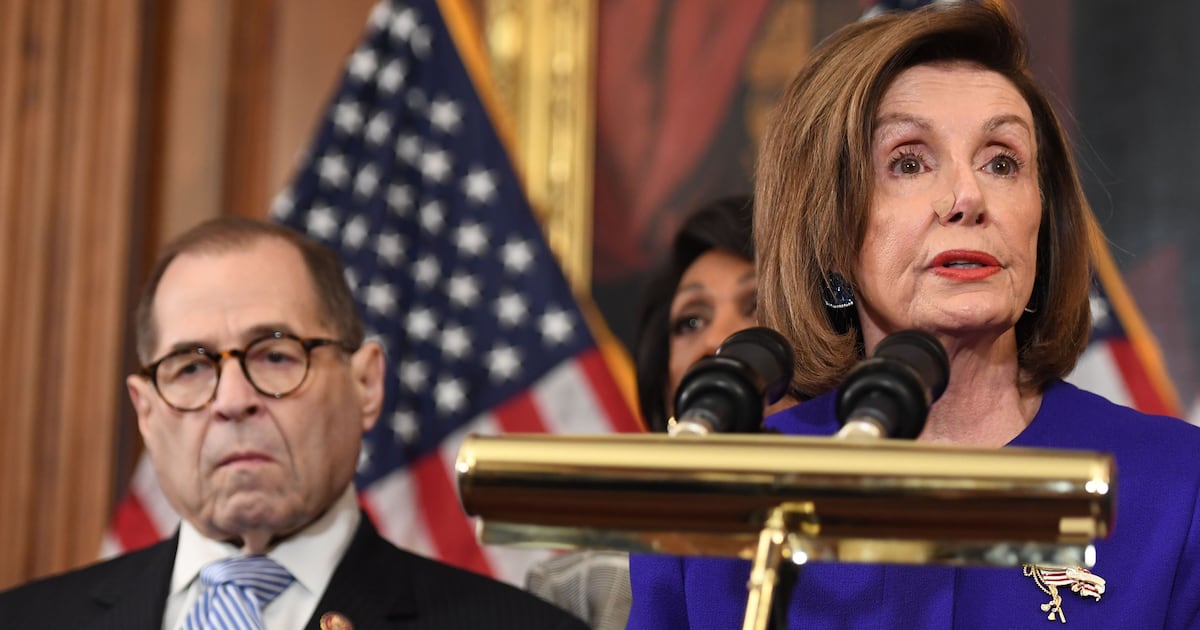The lesson that hyper-partisans will be tempted to take from Tuesday’s historic “shellacking” is that the more polarizing the candidate, the better the results.
Reality does not bear that theory out. In fact, the most celebrated Tea Party-supported nominees trailed more centrist Republican candidates in the same state considerably, putting a drag on the overall ticket and quite possibly costing the GOP control of the U.S. Senate.
The fact that Harry Reid ended up sailing past Sharron Angle in Nevada wasn’t the only important measure of her failure in this marquee Tea Party race. Angle ended up trailing the current Republican Governor-elect Brian Sandoval by more than 61,000 votes.
ADVERTISEMENT
Sandoval didn’t get much national media attention, but this Hispanic, pro-choice former judge won his nomination by defeating an embattled-with-scandal incumbent Republican governor in a primary. He dispatched Harry Reid’s son Rory on Tuesday. Here’s what’s even more remarkable—roughly 20 percent of Sandoval’s voters split their ticket to support Harry Reid rather than Sharron Angle when it came to the Senate. She might have raised $15 million in national activist cash last quarter, but for one-fifth of Nevada voters—even with 14 percent unemployment—Sharron Angle was simply too extreme to send to the Senate.
In Delaware, Christine O’Donnell’s campaign absorbed a lot of oxygen thanks to her serial absurdities and social policy extremism. Her loss took a sure win away from the GOP, who were poised to walk into the seat with the popular centrist former governor and congressman Mike Castle. But thanks to the fact that Democrat-leaning Delaware only has one congressional seat, it’s possible to make an apples-to-apples comparison of their election prowess. In the Democratic midterm wave year of 2006, the Republican Castle won re-election with 57 percent of the total. In this week’s Republican wave, O’Donnell won only 40 percent of the vote, for her third Senate defeat in five years.
In Pennsylvania, Pat Toomey’s nail biting victory over Joe Sestak is the subject of much celebration in conservative circles. The former president of the Club for Growth has been a major proponent of RINO hunting in the GOP for decades, targeting Republican centrists on social as well as fiscal issues. He developed a voting record in Congress that was literally to the right of Jesse Helms. And he will soon be a U.S. Senator from the purple swing-state of Pennsylvania.
This is the first time since 1930 that a party has taken the House and not the Senate.
But in this wave election year, Toomey had been leading comfortably in the polls until a late inning Sestak surge that left the race too close to call for much of the evening. His eventual victory should not obscure this fact—Toomey trailed Governor-elect Tom Corbett by 143,000 votes. That’s a significant measure of ticket-splitting in the Keystone state this year—people who could comfortably support Attorney General Tom Corbett but voted for Democrat Joe Sestak for Senate. It’s a sign of the comparative weakness of Toomey’s mandate as he enters office.

Likewise, Connecticut’s self-funded professional wrestling entrepreneur Linda McMahon may have pumped millions into her campaign, but the race was over early on Tuesday night against Senator-elect Richard Blumenthal. Still, former Bush Ambassador Tom Foley was pushing for a recount early Thursday morning, reflecting his comparative strength on the Republican line. Current totals show Foley running some 70,000 votes ahead of McMahon, translating to a 15 percent ticket split between the WWE executive and the former ambassador to Ireland. Given the razor-thin margin between Foley and Democrat Dan Malloy, it’s entirely possible that a more broadly popular GOP Senate nominee in this state where independent voters outnumber Republicans or Democrats could have helped Foley over the top.
The Tea Party movement can be considered a Western conservative movement but in the archetypal western state of Colorado—home to many early Tea Party chapters—the wheels came off the Tea Party Express. It’s not just that centrist Democrat and Denver Mayor John Hickenlooper was elected governor with 51 percent of the popular vote—it's that the Tea Party insurgent and GOP nominee Dan Maes got only 11 percent of the total. His vote was split by the even more conservative former Congressman Tom Tancredo, who has developed an unprecedented record of ugliness and incitement but still managed to seem comparatively responsible next to Maes and captured 37 percent of the vote—as well as Sarah Palin’s endorsement.
But the real marquee loss for Colorado conservatives came from Tea Party favorite Ken Buck, a social and fiscal conservative who seemed poised to win the seat from the uninspiring incumbent Michael Bennet, who had been appointed to the post only 20 months ago. Bennet was decidedly centrist, having to fight off a Democratic primary challenger from the left, and the former Denver school’s superintendant (and investment banker) didn’t exactly reek of the mountain west. But as statements about Buck questioning the constitutionality of separation of church and state surfaced—and Bennet ran ads pointing out Buck’s opposition to abortion even in cases of rape and incest—the Democrat defeated the Republican to hold onto the Senate seat, aided no doubt by Hickenlooper’s strength at the top of the ticket.
Finally, let’s look at Alaska, where the fault lines in the GOP were starkest thanks to Lisa Murkowski’s gutsy decision to run as a write-in candidate for her seat after losing a low-turnout closed primary to the Sarah Palin-backed Joe Miller. The Republican incumbent Murkowski was attacked as being “center-right” or even “an out of touch liberal” by Palin, but with the votes still being counted, it appears that Murkowski might pull off the first write-in campaign since 1954. Her effort was no doubt aided by statements, actions and evidence that Miller might not be outside the mainstream and ready for prime-time. But those voters weren’t comfortable with the Democratic Party alternative, Scott McAdams. Here’s a final point of comparison—Governor Sean Parnell walked into office with a 70 percent edge over his fellow GOP nominee Joe Miller, a huge measure of ticket-splitting and comparative popularity, a measure of the cost of nominating a more ideological activist candidate.
There’s no question that Tea Party enthusiasm helped power the Republican Party’s historic gains in the House of Representatives and—just as crucial a measure of this wave election—in state legislatures across the nation. The Tea Party's focus on fiscal discipline, reducing the deficit and the debt, and balancing the budget, appeals to independents. But the momentum was so great that the GOP should also have taken the Senate. After all, this is the first time since 1930 that a party has taken the House and not the Senate—and it’s the first time since 1859 that the GOP has controlled the House without the Senate or White House. The extremism of some Tea Party Senate candidates is the reason.
There is a cost to ideological party purges—the candidates who can win a low-turnout closed partisan primary are often not the ones best equipped to convert their activist appeal to general election success. And while the more extreme candidates absorb the oxygen of attention with their politics of incitement and play-to-the-base social issue positions, centrist candidates have a comparatively quiet strength that leads to broader election victories.
John Avlon's new book Wingnuts: How the Lunatic Fringe is Hijacking America is available now by Beast Books both on the Web and in paperback. He is also the author of Independent Nation: How Centrists Can Change American Politics and a CNN contributor. Previously, he served as chief speechwriter for New York City Mayor Rudy Giuliani and was a columnist and associate editor for The New York Sun.






